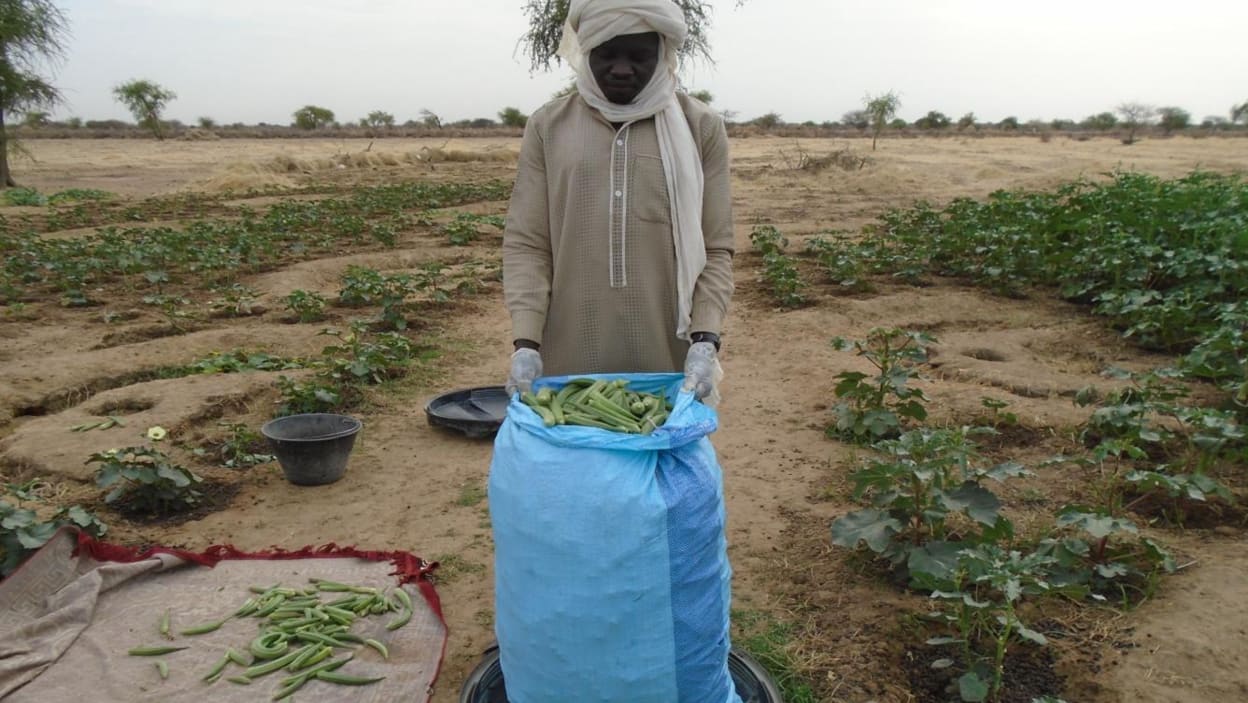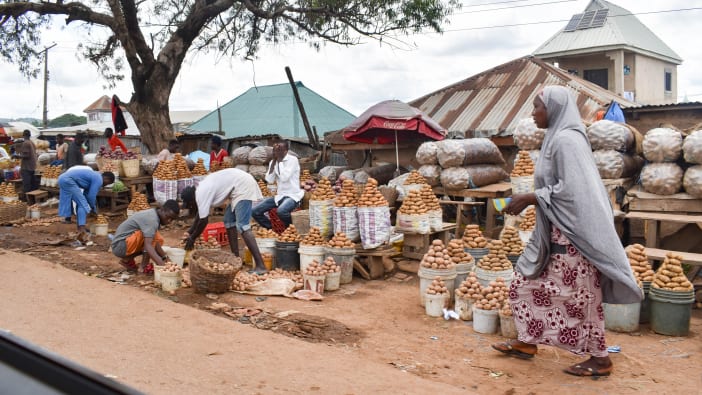Working to solve food insecurity
One of the ways Tearfund is working in the face of the country’s major food insecurity problem, is by rehabilitating green spaces and helping people like Abdelmadjid to find more productive ways of farming that will provide enough food – both for his own family and for the wider community. It’s called ‘Agroforestry’.
Tearfund’s local partner, Projet Évangélique de Développement Communautaire (PEDC), identified the area where Abdelmadjid lives as one where there was a significant level of food insecurity and where there was a large piece of land which was bare and not being used.
Agroforestry in action
To begin, our partner cleared and prepared 30 hectares of land with compost to transplant 18,750 seedlings of many different species, and a solar-powered borehole was installed on the site. One hectare of the land was set aside and prepared for market gardening, for people like Abdelmadjid to grow crops such as okra, cucumbers, watermelons and turnips.
The produce from this site is certified organic and the healthy fruit and veg grown here has already started to provide a good yield to be sold at the market – providing for the farmers’ families and contributing to reducing malnutrition in the country.
Along with this, our local partner has been working to help children, particularly girls (who are most likely to have to drop out of school if the family does not have enough money) to stay in education – both by helping families earn an income and by providing nutritious food for children in school.
A glimmer of hope
Abdelmadjid says, ‘Since I joined this project, I've been happy because I've benefited from seeds, training, awareness-raising and agricultural techniques adaptable to climate change. As a result, I was able to put into practice my new knowledge of crops, cultivate a large area and obtain a good yield.
‘Before the project, the land was bare, undefined and undeveloped. However, we now see incredible greenery with, above all, good agricultural profitability.’
Abdelmadjid has also joined the committees set up to help make sure that the good results can continue once the project itself ends. He says, ‘After [Tearfund’s partner’s] intervention, I feel relieved because there's a glimmer of hope on the horizon for me and my family, who will now be able to eat every day. Income from the sale of market garden produce has enabled me to be financially independent and provide for my family.
‘I have developed the ability to adapt to challenges by being physically and mentally strong and flexible.
‘In conclusion, I thank God, PEDC and its financial backers – in particular Tearfund. May God bless you and extend PEDC's reach through new projects.’
If you'd like to give to help more people like Abdelmadjid, you can do so here.
Read more about Agroforestry in other parts of the world where Tearfund works here.












